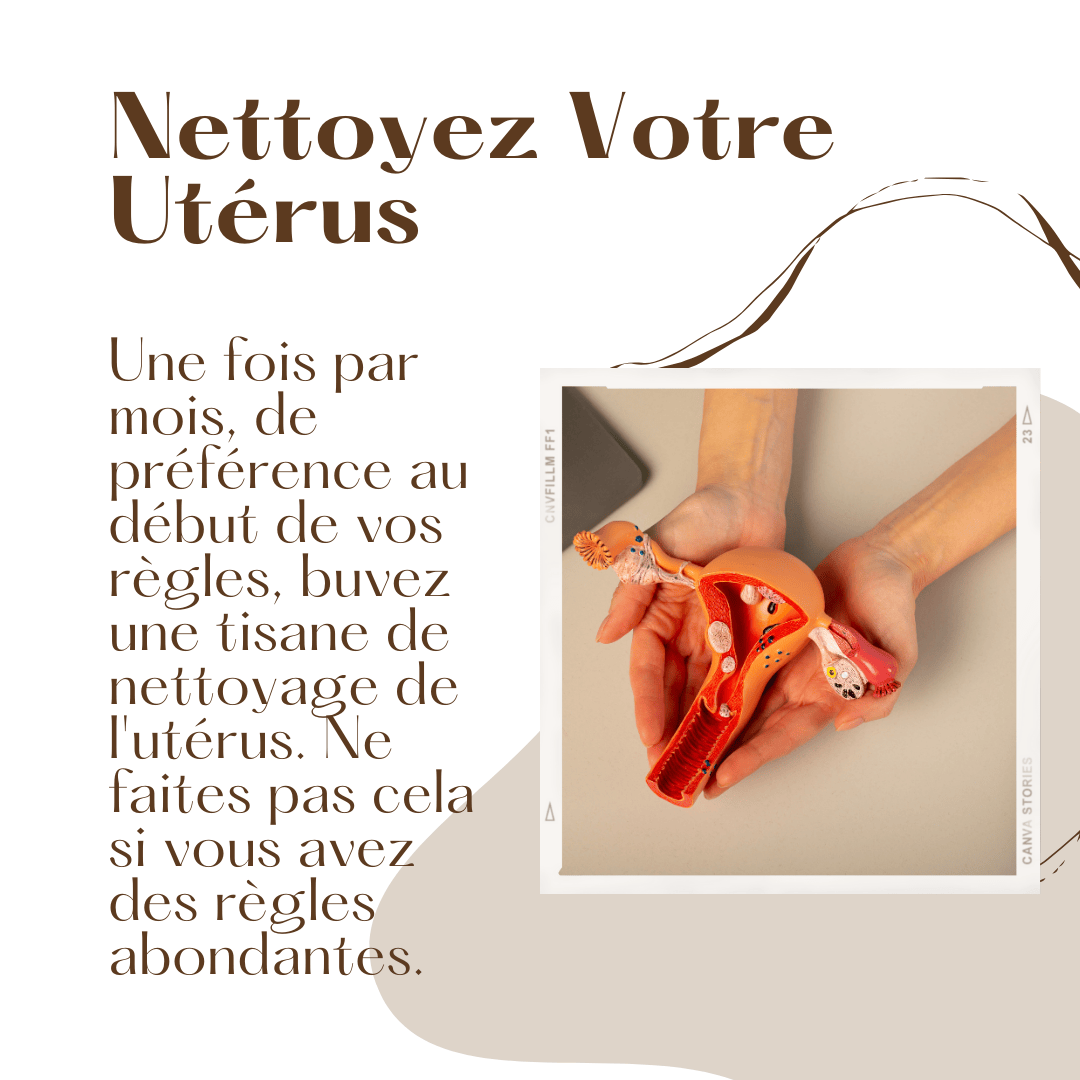Erectile Dysfunction?: Understanding the Causes and Finding Natural Solutions
Addressing the topic of erectile dysfunction is never easy. Many...
July 23, 2023

Conceiving a child can be an emotionally challenging journey for some couples. Fortunately, there are many natural ways to boost your fertility and increase your chances of getting pregnant. In this article, we’ll explore various methods to naturally enhance fertility, focusing on lifestyle changes, nutrition, physical activity, and dietary supplements. We’ll also discuss factors that can impact fertility, such as age, stress, smoking, alcohol consumption, chronic illnesses, and hormonal imbalances.
Dreaming of starting a family? Your diet plays a vital role in your fertility, whether you’re a woman or a man. You may have already started taking supplements like folic acid to support your journey. By adopting a healthy, balanced diet, you can promote regular ovulation, improve sperm quality, and increase your chances of having a child.

To maximize your fertility, focus on fresh, whole foods packed with benefits. Colorful fruits and vegetables rich in vitamin C, whole grains, leafy greens loaded with folic acid, nuts and seeds, avocados, omega-3-rich fatty fish, and wheat germ should take center stage in a varied diet. These natural powerhouses are full of antioxidants, essential vitamins like vitamin C and B9, and vital minerals that support sperm production and promote regular ovulation in women.
For certain vitamins, like vitamin D, while it can be obtained through sun exposure and dairy products, taking a supplement is essential. Sun exposure may not always produce sufficient vitamin D, depending on your skin type and the duration of exposure. Vitamin D is often overlooked, yet it plays a crucial role in regulating hormone levels, such as estrogen and progesterone.
Vitamin E, often overlooked, is essential for hormonal balance, particularly in regulating estrogen and progesterone levels that govern the menstrual cycle. As an antioxidant, it reduces oxidative stress, helping to preserve egg quality and protect sperm from damage caused by free radicals. Studies have shown that supplementing with vitamin E can improve sperm count, motility, and quality in men facing fertility challenges.
To achieve your goal of getting pregnant, certain dietary restrictions are necessary. Limit your intake of red meat, alcohol, caffeine, and refined sugar, as these can negatively affect fertility. Red meats are high in saturated fats, which may increase estrogen levels and disrupt hormonal balance. Alcohol, caffeine, and refined sugar act as endocrine disruptors, potentially causing hormonal imbalances and affecting male fertility by reducing sperm quality.
While these foods are a great starting point, certain herbs and spices can significantly increase the risk of miscarriage. These include Selim peppers, ajowan, and parsley. Consuming them in large quantities while trying to conceive could unintentionally hinder your efforts.
Studies have shown that people who engage in regular physical activity tend to have better fertility than those who are sedentary. However, it’s important to choose moderate physical activities like walking, swimming, yoga, or Pilates, as excessive exercise can negatively impact fertility. High-impact sports, such as running or CrossFit, can cause hormonal imbalances and affect the quality of eggs and sperm.
For centuries, plants and herbs have been used to support male and female fertility. Plants like ginseng, licorice root, and maca root are known to boost sperm production, while dong quai is renowned for balancing hormones in women in Asia and Latin America. In Africa, however, goron tula has played this role for centuries. The fruit of the goron tula grows on trees in certain regions of Africa and is an integral part of Hausa culture for its fertility and libido-enhancing properties.
In English, it is called “Snot apple” due to the sticky nectar it produces. It is also known as “Silky kola” because the goron tula fruit resembles a kola nut and, when processed into syrup, it has a smooth and silky texture.
This small fruit is incorporated into the daily dietary habits of women who wish to conceive, as it helps improve egg quality, resolve ovulation disorders, balance sex hormones, and eliminate any delays in conception.
Finally, rich in antioxidants and essential nutrients, goron tula helps improve sperm quality, thereby enhancing both male and female fertility.

Gorontula increases your chances of conceiving by creating an optimal environment for sperm survival. It stimulates the production of cervical mucus at the cervix, thus facilitating the sperm’s journey to the egg for successful fertilization followed by implantation. It also helps regulate your hormones and improves the quality of the eggs produced.
If you’re having difficulty conceiving and have undergone a fertility assessment that revealed no medical issues, then goron tula is definitely worth trying. Sometimes, the problem lies in insufficient cervical mucus production, preventing sperm from reaching the egg.
While goron tula is more commonly known for enhancing female fertility, it is also used by Hausa men to boost sperm production.
In addition to plants, other natural methods can help boost your fertility. Acupuncture, a technique that involves stimulating certain areas of the body with needles, helps regulate hormones and promote fertility. Aromatherapy uses essential oils to reduce stress and improve blood circulation. Finally, meditation and relaxation are also beneficial as they help reduce stress, balance hormones, and enhance fertility.
Consuming goron tula daily can naturally boost your fertility. However, by following the steps below, you can significantly enhance your chances of conceiving.
This tea can be purchased in pre-made herbal blends from a trusted supplier or prepared at home. Yarrow tea is an excellent herbal choice, as yarrow helps tone uterine muscles and stimulate muscular activity, promoting menstrual flow. It is crucial to consume this tea only during your period to ensure proper uterine cleansing. This precaution helps avoid any risk of disrupting an already fertilized and implanted egg.
Whether in the form of powder, syrup, or fresh fruit, goron tula is a natural ally. We recommend starting on the first day of your period, as it typically takes about seven days to feel its effects.
Ovulation can occur earlier than expected, so it’s advisable to start having intercourse from the seventh day of your cycle to ensure sperm presence if an egg is released sooner. You can also use ovulation tests to determine your ovulation period. With these tests, ovulation usually occurs the day after a positive result, so make sure to have intercourse on that day or the next.
As previously mentioned, certain spices and herbs can unknowingly cause uterine contractions and dislodge an implanted embryo in your uterus.





Age is a crucial factor that can impact fertility in both men and women. In women, the quality and quantity of eggs decrease with age, reducing the chances of conceiving naturally. Oocytes are present from birth, and their reserve gradually declines over time. This reduction can lead to chromosomal abnormalities, miscarriages, or difficulties in conceiving.
In men, both the quality and quantity of sperm can decrease with age, affecting fertility. Studies have shown that sperm quality may begin to deteriorate after the age of 40, which can extend the time needed to conceive a child or even reduce the chances of conception. Therefore, it’s crucial to understand the effects of age on fertility and consider these factors when planning a pregnancy.
Beyond age, other aspects of our lifestyle can significantly impact fertility. Taking care of both your body and mind is essential to support successful conception. Here are some tips to maximize your fertility:
Numerous scientific studies have shown that stress can play a significant role in a person’s ability to conceive. Fertility-regulating hormones are particularly sensitive to stress fluctuations, leading to disruptions in the menstrual cycle for women and a decrease in sperm production for men.
In women, stress can disrupt ovulation and reduce the quality of the eggs produced. Chronic stress can also imbalance hormones, leading to variations in progesterone and estrogen levels. These hormones are crucial for regulating the menstrual cycle, and any disruption can cause menstrual irregularities and decreased fertility.
In men, stress can also affect the quality and quantity of sperm produced. It can increase levels of cortisol, the stress hormone, which interferes with the production of testosterone, an essential hormone for sperm production. Additionally, stress can impair sperm motility, reducing their ability to fertilize the egg.
It’s crucial to highlight that stress can also have indirect effects on fertility, as it may lead to unhealthy behaviors such as smoking, alcohol, or drug use. These habits can also negatively impact fertility. Solutions exist to counter stress and improve fertility. Try relaxation techniques such as meditation, yoga, deep breathing, and therapy. These methods have been proven to reduce stress and enhance fertility.
Tobacco, alcohol, and drugs are more than just fleeting pleasures; they are formidable enemies to our health, including reproductive health. These substances are known to be detrimental factors for fertility in both men and women.
Smoking, one of the leading causes of death globally, has a devastating impact on fertility. Studies unequivocally demonstrate that tobacco impairs sperm quality and quantity in men while reducing fertility in women. Gentlemen, tobacco affects sperm production and mobility, significantly reducing the chances of fertilization. Ladies, be aware that tobacco also affects your fertility by compromising blood flow to the ovaries, leading to decreased egg quality and menstrual problems. Moreover, tobacco increases the risk of miscarriages and ectopic pregnancies.
When it comes to alcohol, it doesn’t mix well with fertility either. Studies have clearly shown that excessive alcohol consumption leads to reduced testosterone levels in men, impacting sperm production and decreasing the chances of conception. In women, excessive alcohol intake can disrupt the hormones that regulate the menstrual cycle, leading to fertility issues. Additionally, alcohol increases the risk of miscarriages and premature births.
Illicit drugs such as cocaine, heroin, and marijuana, as well as the misuse of medications, also harm fertility. In men, these substances can reduce the quantity and quality of sperm. In women, drugs disrupt hormonal balances, leading to fertility problems. Unfortunately, the consequences do not stop there: drugs also increase the risk of miscarriages, premature births, and birth defects.

The scale is not just a tool for monitoring your figure; it also plays a crucial role in your fertility. Obesity and being overweight can negatively impact your ability to conceive, whether you’re a man or a woman. Excess weight significantly disrupts the hormones responsible for regulating the menstrual cycle in women and sperm production in men. The result: irregular menstrual cycles, impaired ovulation, and reduced sperm quality, which can lead to male infertility.
In women, obesity can also increase the risk of complications during pregnancy, such as gestational diabetes, pre-eclampsia, and even preterm labor. In men, obesity negatively affects fertility as well, potentially leading to a decrease in both the quality and quantity of sperm.
Want to increase your chances of conceiving? The good news is that weight loss can truly improve your fertility, especially if you are overweight or obese. Even moderate weight loss can make a significant difference. Studies have shown that a 5 to 10% reduction in body weight can greatly improve fertility in women with polycystic ovary syndrome (PCOS), a common hormonal condition that can lead to ovulation problems and infertility.

Libido plays a crucial role in fertility as it is responsible for sexual desire and the urge to procreate. However, many factors can affect libido, such as stress, fatigue, poor diet, inappropriate lifestyle, and the use of certain medications. Fortunately, there are several methods to naturally stimulate your libido and improve your chances of conception.
One of the simplest methods to stimulate your libido is to exercise regularly. Physical activity helps increase testosterone production and improve blood circulation, including in the genital areas. Additionally, it helps reduce stress and anxiety, which can also affect libido. It is recommended to engage in exercise for at least 30 minutes per day, several times a week.
A rich and balanced diet full of essential nutrients is also beneficial for boosting your libido. Certain foods like goron tula, seafood, nuts and seeds, green vegetables, berries, olive oil, and antioxidant-rich foods enhance blood circulation and increase testosterone production, which is crucial for a healthy libido.
It is crucial to explore natural solutions to boost your fertility and revitalize your libido. Imagine adopting a vibrant lifestyle, savouring a balanced diet, moving your body regularly, managing stress effectively, and enjoying the benefits of plants and herbs. These approaches can truly make a difference! However, keep in mind that their effectiveness may vary from person to person, and patience and perseverance are often required to achieve remarkable results.
For a safe approach, it is imperative to consult a healthcare professional before embarking on natural methods to enhance your fertility. Some plants and herbs may interact with medications or have undesirable side effects. Nevertheless, when these approaches are well combined, they can bring significant and lasting results.
Imagine this: a healthy life, renewed vitality, and a thriving libido. Ultimately, embracing a balanced lifestyle and regularly consulting a healthcare professional are key to fulfilling your dream of having a child and enhancing your fertility naturally and harmoniously!
Addressing the topic of erectile dysfunction is never easy. Many...
Balancing a busy life while prioritizing physical health and well-being...
Fructose, the simple sugar we consume daily without even thinking...
The Amazon rainforest is home to countless natural wonders, but...
Many women seek solutions to feel more comfortable and confident...